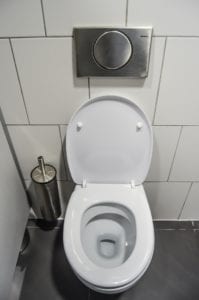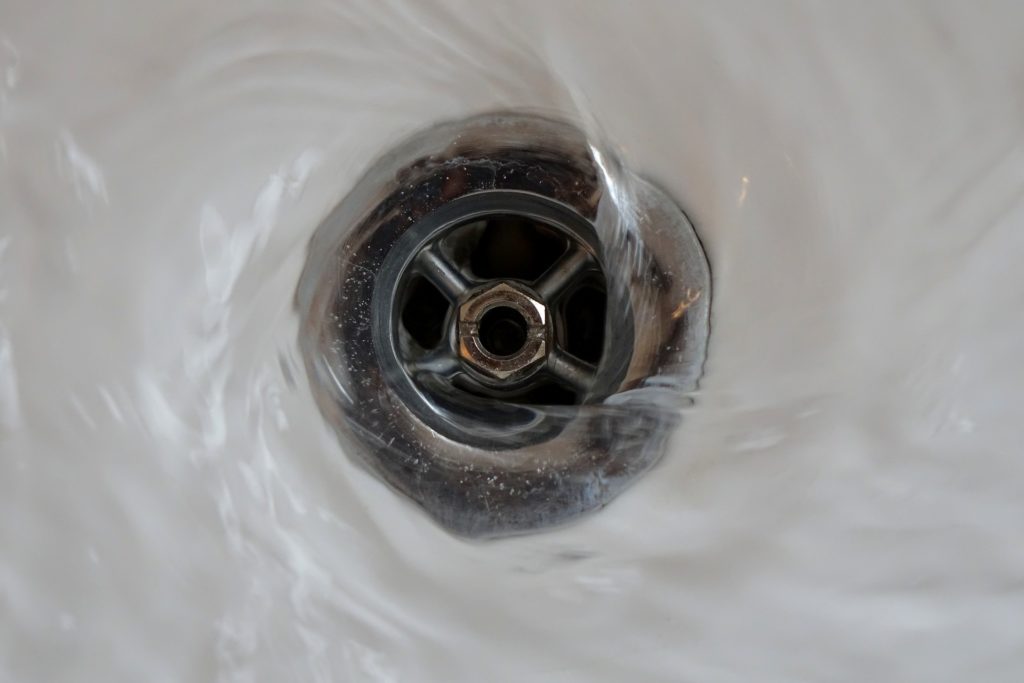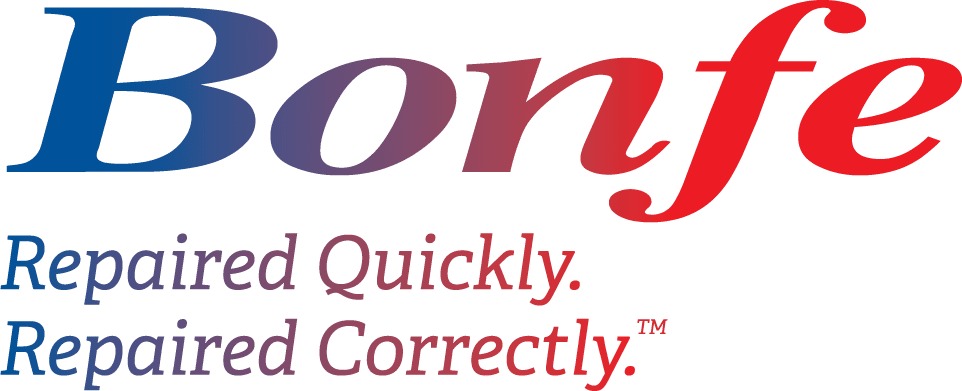January, 2020
Drain Clearing and Cleaning
Bogged down by clogs? Why you should avoid using harsh chemical drain cleaners – and other important tips so you don’t let your money go down the drain.

What do I do if I have a clogged sink drain or toilet? How can I fix a clog cheaply and quickly? How can I help prevent clogs without spending tons of money or damaging my system? What’s the difference between clearing a drain and cleaning a drain? How can I tell if the problem is coming from the drain and pipes in my house or from the main sewer line to my community’s water system? What the heck is a main sewer line anyway, and why should I care?
Believe it or not, we’re going to hit all of this in one ultra-efficient newsletter. We’re also going to tell you why you should avoid using harsh chemical drain cleaning products. Get ready to get with the flow: This is Drains 101.
Drains 101: Bogged down by clogs? Why you should avoid using harsh chemicals to clean your drains – and other important tips so you don’t let your money go down the drain.
There are a million reasons for a clogged drain: Hair. Conditioner. Toilet paper. When your toddler lets their toy car “swim” in the toilet. A serious problem like a tree root growing in your main sewer line.
Wait, what? What’s a main sewer line?
Here’s what you need to know about your main sewer line:
You have pipes inside your house, of course. But those pipes all meet up and connect to one, larger drain that goes from your house to your community’s water/sewer system. This “main” line is underground. If there’s an issue with the main sewer line, you’ll see evidence indoors.
The most common evidence is multiple drains slowing down or backing up simultaneously in your home. For example, you might notice that your tub drain is really slow and suspect some clogged hair. But before you take action, check out other drains first (laundry sink, shower, kitchen sink, etc.). If they’re unusually slow too, the culprit may actually be an issue with the main sewer line. If that’s the case, you’ll need to call in a professional. All main sewer line clogs need to be cleared professionally. The pros have special cameras they can use to identify issues, as well as the tools required to safely clear, repair or even replace the main sewer line without getting you in hot water with your city.

What about the drains and pipes inside my house?
So what if your problem appears to be a run-of-the-mill drain clog, and not a main sewer line issue? Here’s what you can do:
Step 1: If it’s a drain with a stopper, pull up the stopper and see if you can identify and remove an obvious culprit, such as a clump of hair clinging to the line attached to the stopper. (Gross yet very common.) If you have a drain snake and know how to use it properly, go for it – or you can leave that dirty job to the professionals.
If your drain doesn’t have a stopper, you can try needle nose pliers to pull out clogs near the surface.
Step 2: If you can’t see what’s clogging the drain (or you aren’t able to resolve the issue by pulling out whatever clog you see), it’s time for a drain clearing solution. We recommend an all-natural product that relies on enzymes to effectively eat away clogs inside your home’s pipes. Unlike harsh chemical products, a natural enzyme cleaner won’t damage the interior surface of your pipes.
What’s the best way to prevent clogs and maintain my drains?
DIY clean. Every month or so, treat your drains to a dose of natural enzymes. Regular use can help slowly and safely remove the gunk that builds up inside a home’s pipes.
The volume treatment. Another cool trick: Every few months, fill your sink all the way up with water and then let it drain slowly. The weight of this volume of water is a natural way to help clear smaller clogs and combat buildup.
Use hair strainers. One of the most effective tools you can use to prevent clogs: hair strainers. These inexpensive, low-tech gadgets are available for both stopper drains and flat drains and are designed to trap hair before it gets into your pipes. You’ll need to clear out these hair strainers regularly. It’s a dirty job, but it’s a whole lot better than a clog!
Professional cleaning. To really get your pipes clean, it’s a good idea to have your drains professionally water jetted. Water jetting eliminates buildup on the inside walls of the pipes, which opens up your drain to flow smoothly and efficiently.
There’s a lot you can do at home to prevent and treat clogs and maintain your drains, but never be afraid to call in the pros. We’ve seen it all, and we’re here to help.
PRO TIP: Do not use harsh chemical drain-clearing products. While these “solutions” are very popular, this type of drain cleaner is highly corrosive and eats away at cast iron and galvanized pipes (the most common types of pipes in most older homes). They might clear your clog effectively, but the potential damage to your system far outweighs any benefits you might gain from a temporarily cleared drain. Damaged pipes can leak or burst, causing major – and majorly expensive – problems in your home. Instead, try a drain cleaner that uses natural enzymes.

